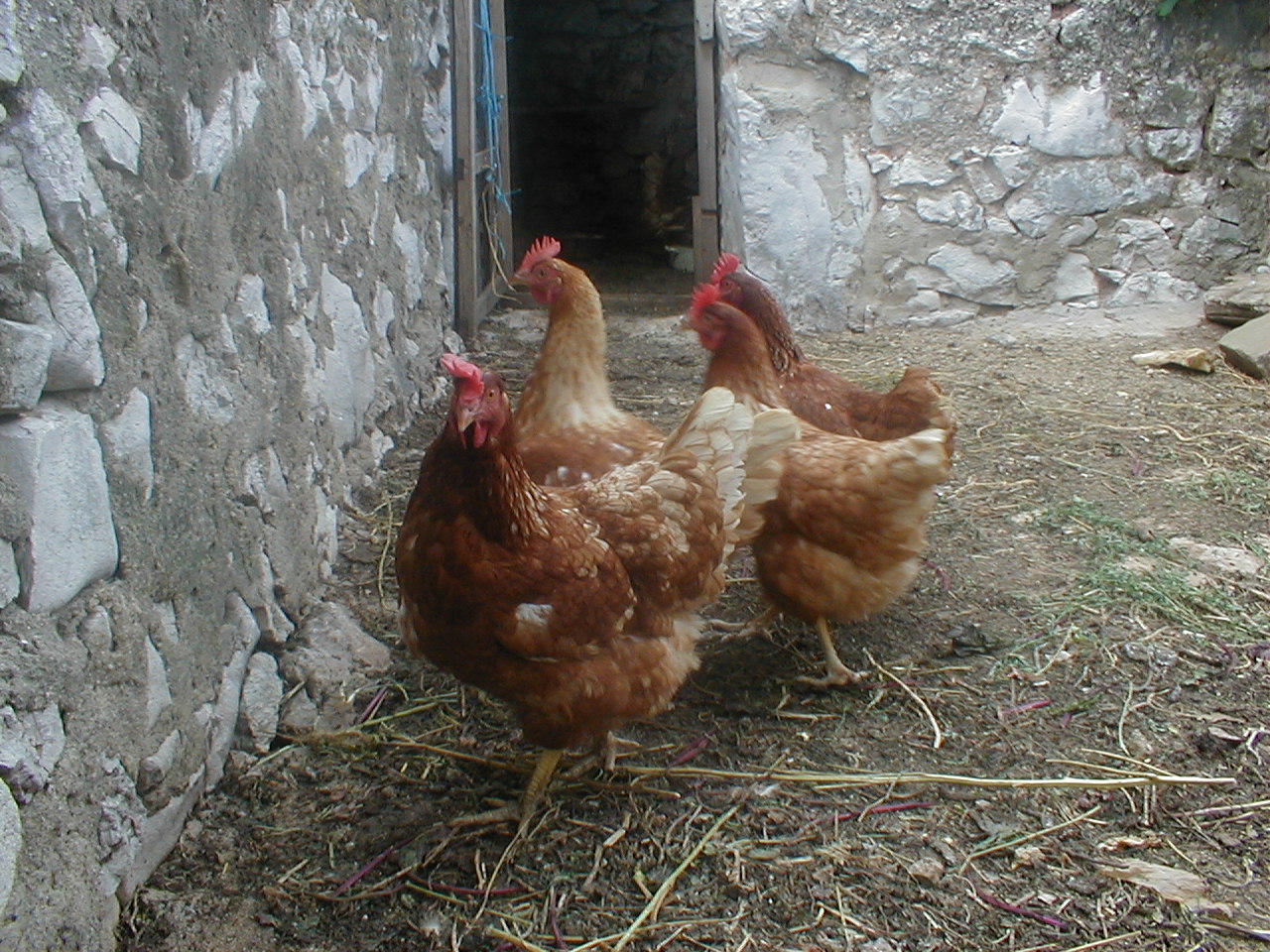It's official: Britain has slipped from being entangled in the phenomenon known as the 'credit crunch', into a full blown recession. As people tighten their purse strings, many are turning to cheaper alternatives in their weekly shop. However, an increasing number are taking things a step further and producing their own food. Figures and reports have shown that allotments are being fought over (with some sites having a ten year waiting list) and vegetable plots are springing up all over the country, but a surprising amount of people are ruffling a few more feathers with their recession-busting measures.
My first encounter with this particular solution to the pinch took place unexpectedly last Monday morning. At first, I was convinced I was hearing things (or at the very least, being repeatedly subjected to someone's novelty text alert), but after some enquiries found out that I was indeed hearing a real life rooster's deafening crow in the middle of North London. In a nearby street, a household has become one of the latest to join the urban chicken keeping movement that is spreading across the UK.
Last month, the Guardian reported that sales of garden-friendly sized plastic chicken coops had tripled in the last 12 months, and that the re-homing rate of rescued battery hens has more than doubled. It is estimated that around half a million households are now keeping chickens, with the figures steadily rising. The combined novelty of a pet and food provider certainly sounds promising, and is obviously an idea people are buying into, but is it really worth it?

The average price of a hen is estimated at £12 and hens lay up to 300 eggs each year (meaning an individual hen could provide you with roughly a box of eggs per week). The cost of feeding a hen is 3p per day, and a box of organic eggs would normally set you back around £1.82. Factoring in the initial purchase cost for a single hen and some modest housing in the form of a wood en coop (to provide nesting space and protection from foxes, £117), you will have earned back your investment costs (through savings) in less than 18 months.
Aside from the economic factor, people seem to benefit from keeping feathered friends in other areas. Owners are quick to point out that their poultry produce an organic, nitrogen rich addition to the compost bin, and help to remove unwanted bugs from lawns and flower beds, all whilst aerating the soil with their scratching. Children can be educated about responsibility when caring for hens, and it is also claimed that urban chicken eggs are more nutritious than store bought counterparts, with higher levels of vitamins A and E, beta carotene and omega-3 fatty acids.
If you are seriously considering setting up your own flock, there are numerous online resources, mainly in the form of blogs devoted to the subject (many of which are based in the US, where urban chicken keeping has already established a vast following). These provide a round up of articles on the subject, as well as personal accounts from long-time coop-keepers and tips about essentials such as wing clipping.
A word of advice though: hens do not need the company of a cockerel/rooster to produce eggs. They can certainly be introduced to keep the hens particularly happy, but I'm not sure it'll have the same effect on the neighbours...
Stock photo source
Last month, the Guardian reported th

If you are seriously considering setting up your own flock, there are numerous online resources, mainly in the form of blogs devoted to the subject (many of which are based in the US, where urban chicken keeping has already established a vast following). These provide a round up of articles on the subject, as well as personal accounts from long-time coop-keepers and tips about essentials such as wing clipping.
A word of advice though: hens do not need the company of a cockerel/rooster to produce eggs. They can certainly be introduced to keep the hens particularly happy, but I'm not sure it'll have the same effect on the neighbours...
Stock photo source







despe906 Said,
First came too much debt, then the urban hen. I like your writing style, keep up the good work.
Posted on 8 March 2009 at 05:02